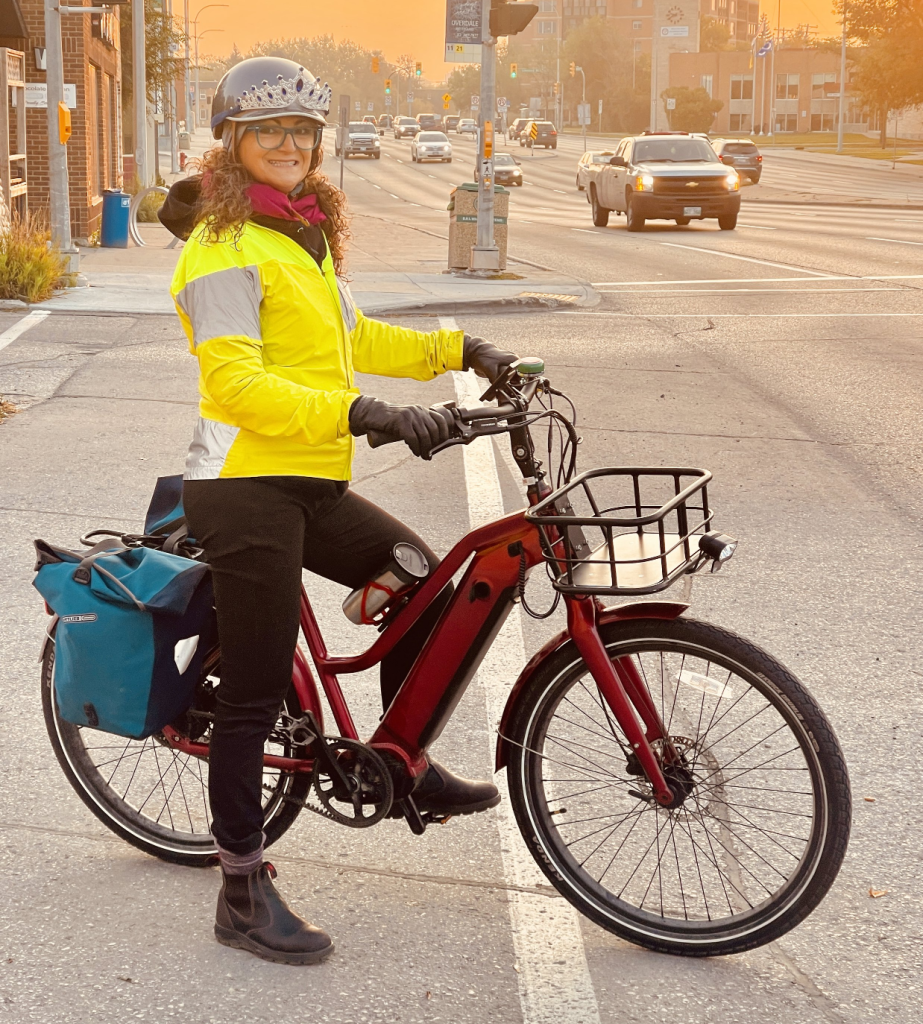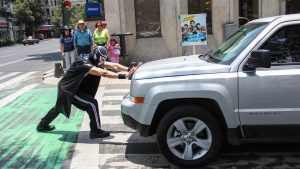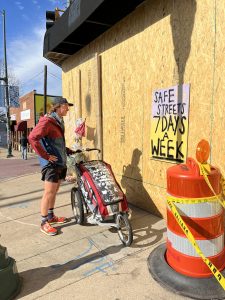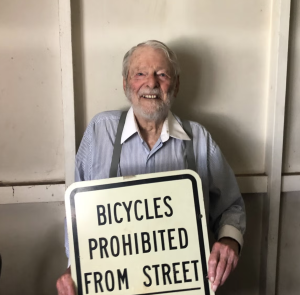
NOTE: This is part one of a two-part episode. To hear both parts right now and without ads, become a Patreon supporter of The War on Cars.
“Cyclists fare best when they act and are treated as drivers of vehicles.“
That quote is the core philosophy of John Forester, the father of vehicular cycling. Forester, who died in 2020, was a major figure in the the world of cycling advocacy and transportation policy, and his influence shaped street design and bicycle safety in the United States for decades. We take a deep dive into Forester’s 1976 book, Effective Cycling. Part guidebook, part encyclopedia, part polemic, Effective Cycling explains why cyclists should not be afraid to ride not just in traffic, but as traffic. Throughout the book, Forester dismisses anyone who might be afraid of taking the lane with fast-moving cars and trucks as suffering from what he calls the “cyclist inferiority complex” and asserts that only a strict adherence to the principles of vehicular cycling can keep everyone safe.
Who was John Forester? What is vehicular cycling? Why are we talking about a book that was published almost fifty years ago? It’s all here in this mega episode.
You can find the full transcript of Part 1 here.
This episode was sponsored by Cleverhood and Pinhead Locks. Listen for the latest discount codes.
LINKS/SOURCES
Read Peter Flax in conversation with John Forester, via Bicycling Magazine.
Northeastern University’s Peter Furth takes on John Forester.
STUDY: “Risk of injury for bicycling on cycle tracks versus in the street,” by Lusk, Furth, et. al.
PAPER: “A Historical Perspective on the AASHTO Guide for the Development of Bicycle Facilities and the Impact of the Vehicular Cycling Movement,” Schultheiss, Sanders, and Toole, 2018
AASHTO’s Draft Bikeway Guide Includes Protected Bike Lanes and More, Streetsblog 2016
Key Design Guide to Finally Include Protected Bike Lanes, Streetsblog 2018
‘Death Of A ‘Dinosaur:’ Anti-Cycleway Campaigner John Forester Dies, Aged 90, by Carlton Reid in Forbes
Read Bike Boom: The Unexpected Resurgence of Cycling, by Carlton Reid.
Read Bike Battles: A History of Sharing the American Road, by James Longhurst.
How the former Dallas bicycle coordinator held back cycling infrastructure for years, via the Texas Observer.
Dallas’ Former Bike Czar Tells Newbie Riders to Go Play in Traffic, via the Dallas Observer
Access John Forester’s website via the Wayback Machine.
If you’re a glutton for punishment, pick up a copy of John Forester’s Effective Cycling.
Grab some merch in our official store!
This episode was edited by Yessenia Moreno. It was recorded by Josh Wilcox at the Brooklyn Podcasting Studio.
https://thewaroncars.org/
Check out this episode!










